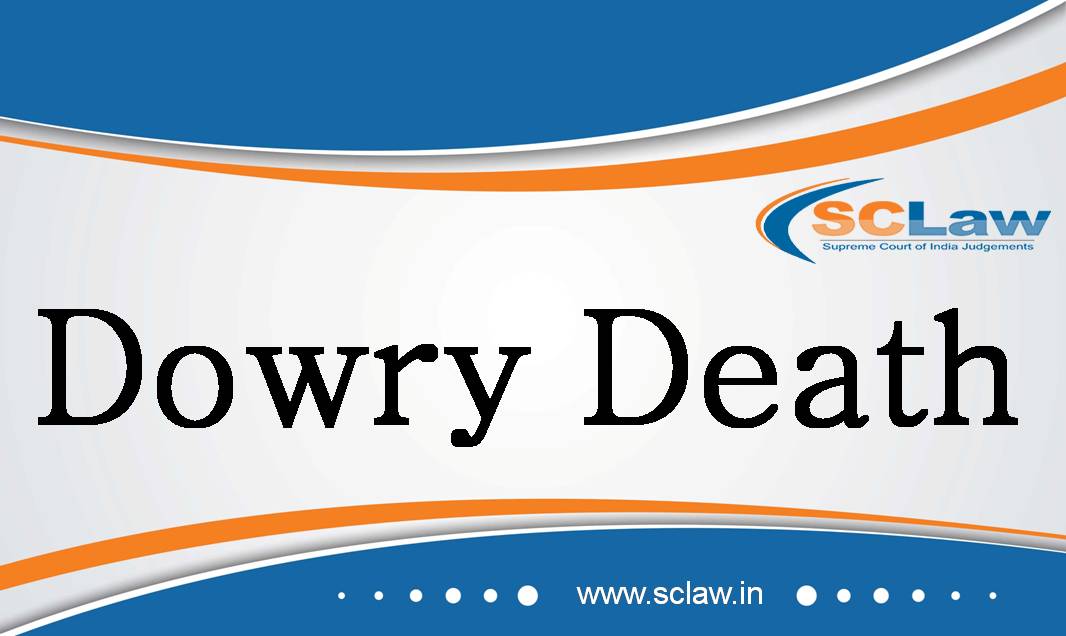Common Intention–Even a past enmity by itself may not be a ground to hold for drawing any inference of formation of common intention amongst the parties. –Criminal Law–Common Intention–It is well settled that Section 34 of IPC does not create a distinct offence, it only lays down the principle of joint criminal liability–The necessary conditions for the application of Section 34 of Code are common intention to commit an offence and participation by all the accused in doing act or acts in furtherance of common intention–Penal Code, 1860, Section 34.
2009(1) LAW HERALD (SC) 131 IN THE SUPREME COURT OF INDIA Before The Hon’ble Mr. Justice S.B. Sinha The Hon’ble Mr. Justice Cyriac Joseph Criminal Appeal No. 2067 of 2008…
Accident Law–Impleading of Insurance–Liability of the insurance company arises for the purpose of reimbursement of the amount of compensation found to be payable by the owner of the vehicle insured–It is only in exceptional cases and as provided for under Section 170 of the Act, the insurance company can defend a claim petition–Only on limited grounds it may be permitted to question the quantum of compensation–Motor Vehicles Act, 1988, Section 170.
2009(1) LAW HERALD (SC) 126 IN THE SUPREME COURT OF INDIA Before The Hon’ble Mr. Justice S.B. Sinha The Hon’ble Mr. Justice Cyriac Joseph Civil Appeal No. 7318 of 2008…
Arbitration–An independent Arbitration clause in Agreement is not terminated by rescinding of other collateral agreement. Arbitration Agreement–An agreement to enter into an agreement is not enforceable nor does it confer any right upon parties.
2009(1) LAW HERALD (SC) 122 IN THE SUPREME COURT OF INDIA Before The Hon’ble Mr. Justice J.M. Panchal Arbitration Application No. 22 of 2007 Speech & Software Technologies (India) Pvt.…
Held; while considering an application for bail, detailed discussion of evidence and elaborate documentation of merit is to be avoided–No party should have impression that his case has been pre-judged–Existence of prima facie case is only to be considered–No merit–Appeal dismissed
2009(1) LAW HERALD (SC) 117 IN THE SUPREME COURT OF INDIA Before The Hon’ble Mr. Justice Dr. Arijit Pasayat The Hon’ble Mr. Justice Dr. Mukundakam Sharma Criminal Appeal No. 406…
Rape–Law no were provides that it is not possible for a single man to commit sexual inter course with a healthy adult female in full possession of her sense against her will.
2009(1) LAW HERALD (SC) 114 IN THE SUPREME COURT OF INDIA Before The Hon’ble Mr. Justice Dr. Arijit Pasayat The Hon’ble Mr. Justice Dr. Mukundakam Sharma Criminal Appeal No. 2044…
Service and Labour Law–Absence without leave–Dismissal from service–Misconduct–Proportionality of punishment–Appellant claimed that punishment of termination is disproportionate to gravity of offence charged–No mitigating circumstances could be shown–Similar offence committed earlier–Punishment of simplicitor dismissed not disproportionate to gravity of offence–Appeal dismissed
2009(1) LAW HERALD (SC) 93 IN THE SUPREME COURT OF INDIA Before The Hon’ble Mr. Justice S.B. Sinha The Hon’ble Mr. Justice Cyriac Joseph Criminal Appeal No. 2061 of 2008…
Dowry Death–Soon before death–Words “Soon before her death” occurring in section 304-B of Penal Code, are to be understood in relative and flexible sense–Those words cannot be construed as lying down a rigid period of time to be mechanically applied in each case–Whether or not the cruelty or harassment meted out to the victim for or in connection with the demand of dowry was soon before her death and the proximate cause of her death, under abnormal circumstances, would depend upon the facts of each case–There can be no fixed period of time in this regard–Penal Code, 1860, Section 304-B.
2009(1) LAW HERALD (SC) 88 IN THE SUPREME COURT OF INDIA Before The Hon’ble Mr. Justice Lokeshwar Singh Panta The Hon’ble Mr. Justice Aftab Alam Criminal Appeal No.67 of 2006…
Territorial Jurisdiction–Ouster clause–Agreement between parties that only Courts at Jaipur alone would have jurisdiction–Even though Courts at Calcutta would have jurisdiction but in view of ouster clause it would only the Courts at Jaipur which would have jurisdiction to entertain such proceeding.
2009(1) LAW HERALD (SC) 81 IN THE SUPREME COURT OF INDIA Before The Hon’ble Mr. Justice Tarun Chatterjee The Hon’ble Mr. Justice Dr. Mukundakam Sharma Civil Appeal Nos. 5430-5431 of…
Accident–Owner of vehicle already dead–Vehicle not transferred in the name of his heirs–Insurance renewed in the name deceased owner–Accident took place and driver died–No witnesses examined by insurance company that they were not aware about death of original owner–Compensation rightly granted to wife of deceased driver.
2009(1) LAW HERALD (SC) 74 IN THE SUPREME COURT OF INDIA Before The Hon’ble Mr. Justice S.B. Sinha The Hon’ble Mr. Justice Cyriac Joseph Civil Appeal No. 7009 of 2008…
COMPLAINANT HAS NOT TO WAIT FOR MISUSE OF BAIL ORDER CAN STRAIGHTWAY CHALLENGE IT–Cancellation of Bail–Complainant can always question the order granting bail if the said order is not validly passed–It is not as if once a bail is granted by any Court, the only way is to get it cancelled on account of its misuse–Bail order can be tested on merits also–Complainant could question the merits of order granting bail– Penal Code, 1860, Section 302–Criminal Procedure Code, 1973, Section 439(2).
2009(1) LAW HERALD (SC) 72 IN THE SUPREME COURT OF INDIA Before The Hon’ble Mr. Justice Tarun Chatterjee The Hon’ble Mr. Justice V.S. Sirpurkar Criminal Appeal No. 2087 of…













